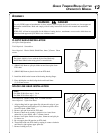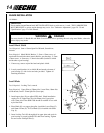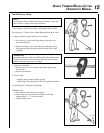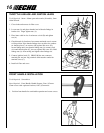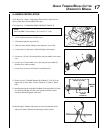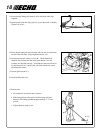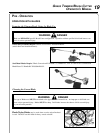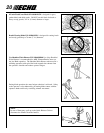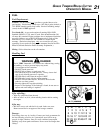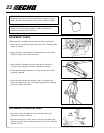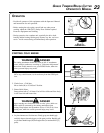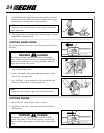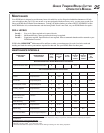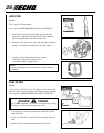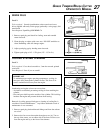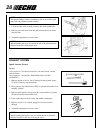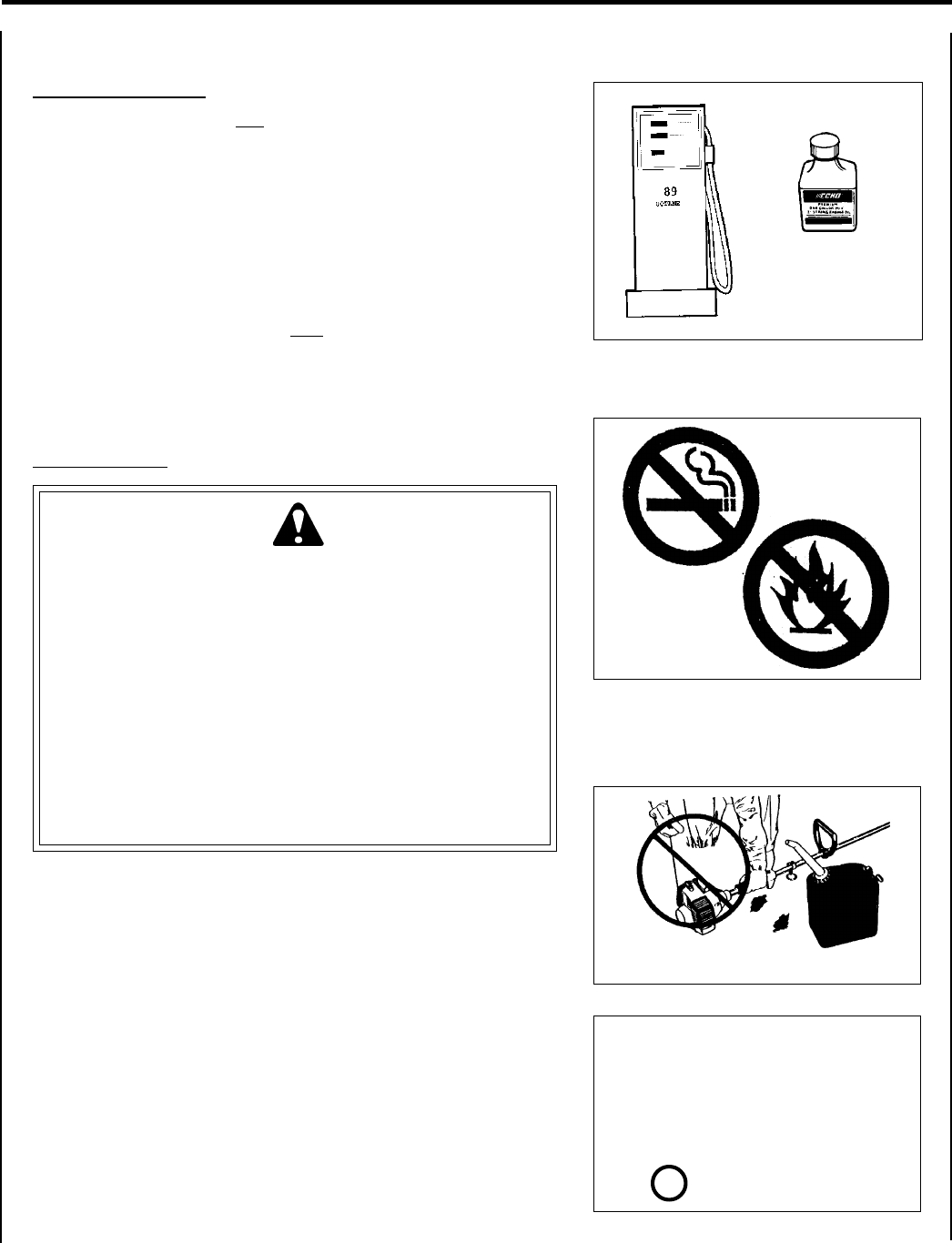
G
RASS
T
RIMMER
/B
RUSH
C
UTTER
O
PERATOR
'
S
M
ANUAL
21
SM TWTF S
123456 7
8 9 10 11 12 13 14
15 16 17 18 19 20 21
22 23 24 25 26 27 28
29 30 31
R + M
2
3 M
(10 FT.) MINIMUM
FUEL
Fuel Requirements
Gasoline - Use 89 Octane [ ] gasoline or gasohol known to be
good quality. Gasohol may contain up to 10% Ethyl (grain) alcohol or
15% MTBE (methyl tertiary-butyl ether). Gasohol containing methyl
(wood) alcohol is NOT approved.
Two Stroke Oil - A two-stroke engine oil meeting ISO-L-EGD
Standard (ISO/CD 13738), must be used. Echo brand Premium 50:1
oil meets this standard. Engine problems due to inadequate lubrication
caused by failure to use an ISO-L-EGD approved oil, such as Echo
Premium 50:1 Two-stroke Oil, will void the two-stroke engine
warranty. (Emission related parts only are covered for two years,
regardless of two-stroke oil used, per the statement listed in the EPA
Phase I/California Emission Defect Warranty Explanation.)
Mixing - Follow directions on the oil container.
Handling Fuel
WARNING DANGER
Fuel is VERY flammable. Use extreme care when mixing, storing
or handling, or serious personal injury may result.
• Use an approved fuel container.
• DO NOT smoke near fuel.
• DO NOT allow flames or sparks near fuel.
• Fuel tanks/cans may be under pressure. Always loosen fuel
caps slowly allowing pressure to equalize.
• NEVER refuel a unit when the engine is HOT!
• NEVER refuel a unit with the engine running.
• DO NOT fill fuel tanks indoors. ALWAYS fill fuel tanks
outdoors over bare ground.
• Securely tighten fuel cap after refueling.
• Inspect for fuel leakage. If fuel leakage is found, do not start or
operate unit until leakage is repaired.
After refueling;
• Wipe any spilled fuel from the unit.
• Move at least 3 m (10 ft.) from refueling location before starting
the engine.
After use;
• DO NOT store a unit with fuel in its tank. Leaks can occur.
Return unused fuel to an approved fuel storage container.
Storage -
Fuel storage laws vary by locality. Contact your local government for
the laws affecting your area. As a precaution, store fuel in an ap-
proved, air tight container. Store in a well ventilated, unoccupied
building, away from sparks and flames. Do not store fuel longer than
30 days.



